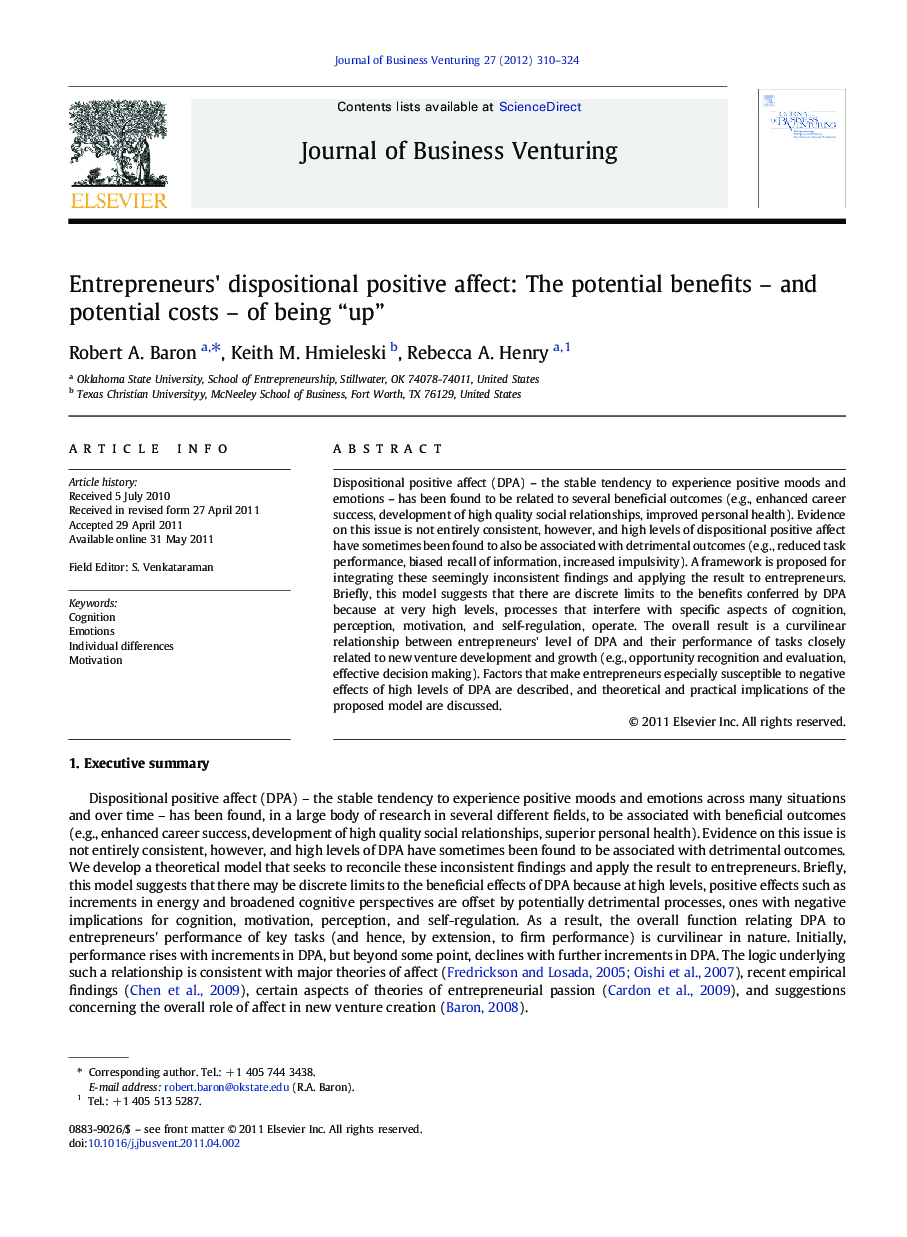| Article ID | Journal | Published Year | Pages | File Type |
|---|---|---|---|---|
| 1019630 | Journal of Business Venturing | 2012 | 15 Pages |
Dispositional positive affect (DPA) – the stable tendency to experience positive moods and emotions – has been found to be related to several beneficial outcomes (e.g., enhanced career success, development of high quality social relationships, improved personal health). Evidence on this issue is not entirely consistent, however, and high levels of dispositional positive affect have sometimes been found to also be associated with detrimental outcomes (e.g., reduced task performance, biased recall of information, increased impulsivity). A framework is proposed for integrating these seemingly inconsistent findings and applying the result to entrepreneurs. Briefly, this model suggests that there are discrete limits to the benefits conferred by DPA because at very high levels, processes that interfere with specific aspects of cognition, perception, motivation, and self-regulation, operate. The overall result is a curvilinear relationship between entrepreneurs' level of DPA and their performance of tasks closely related to new venture development and growth (e.g., opportunity recognition and evaluation, effective decision making). Factors that make entrepreneurs especially susceptible to negative effects of high levels of DPA are described, and theoretical and practical implications of the proposed model are discussed.
Research highlights► High levels of dispositional positive affect (the stable tendency to be "up") are related to beneficial outcomes. ► However, there may be limits to these benefits; at very high levels, positive affect interferes with aspects of cognition, perception, and self-regulation. ► Entrepreneurs tend to be high in dispositional affect, so they may be especially susceptible to such effects. ► This can have negative implications for their success in launching new ventures.
